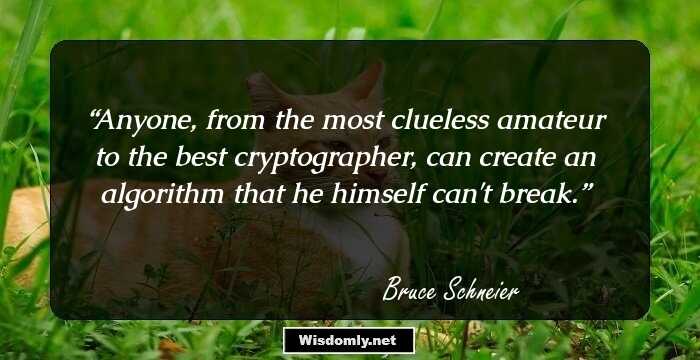37 Offbeat & Wonderful Quotes By John Forbes Nash Jr.
John Forbes Nash Jr., the only person to receive both Nobel Memorial Prize in Economic Sciences and Abel Prize, did not have it easy. A brilliant mathematician from the very start, he wrote many ground-breaking papers before he began to show signs of paranoia, being institutionalized for protracted periods for the ailment. After his release, he began where he left, eventually publishing his seminal work on game theory, now known as Nash equilibrium. In his interviews, talks and essays, he has talked openly not only about his works, but also about his life, his mental illness and recovery. Let us look at some of his thought provoking quotes mathematics, numbers, economics, history, research etc.
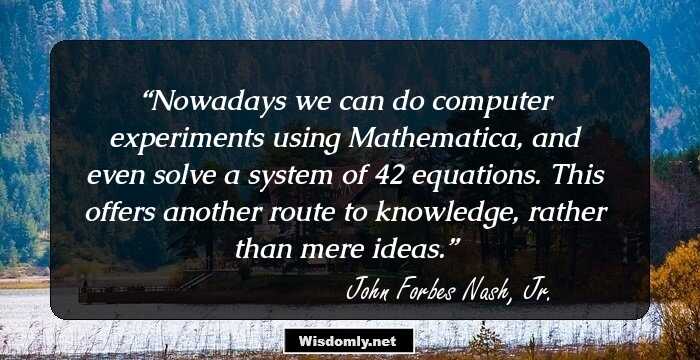
Nowadays we can do computer experiments using Mathematica, and even solve a system of 42 equations. This offers another route to knowledge, rather than mere ideas.

It's better to be dead, or even perfectly well, than to suffer from the wrong affliction. The man who owns up to arthritis in a beri-beri year is as lonely as a woman in a last month's dress.

In a dream it's typical not to be rational.
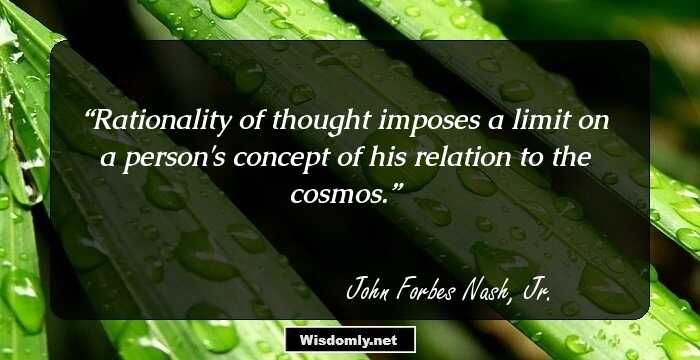
Rationality of thought imposes a limit on a person's concept of his relation to the cosmos.
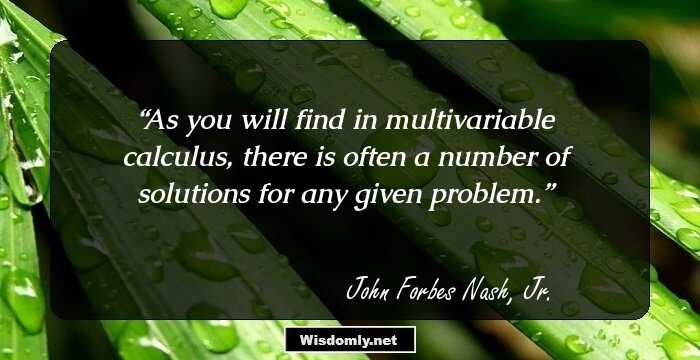
As you will find in multivariable calculus, there is often a number of solutions for any given problem.
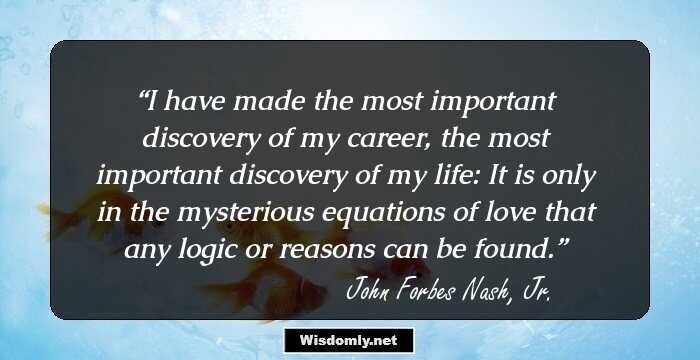
I have made the most important discovery of my career, the most important discovery of my life: It is only in the mysterious equations of love that any logic or reasons can be found.

I don't think exactly like a professional economist. I think about economics and economic ideas, but somewhat like an outsider.

The dollar used to be a gold standard currency. And the dollar is really good in the last century, I mean in the 19th century.
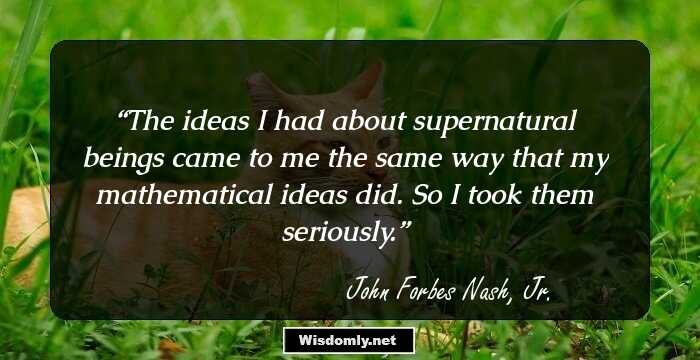
The ideas I had about supernatural beings came to me the same way that my mathematical ideas did. So I took them seriously.
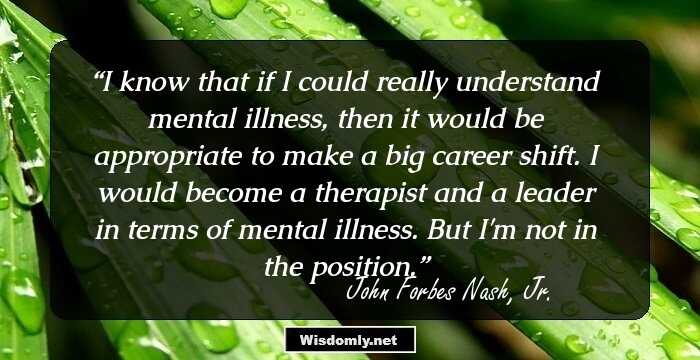
I know that if I could really understand mental illness, then it would be appropriate to make a big career shift. I would become a therapist and a leader in terms of mental illness. But I'm not in the position.
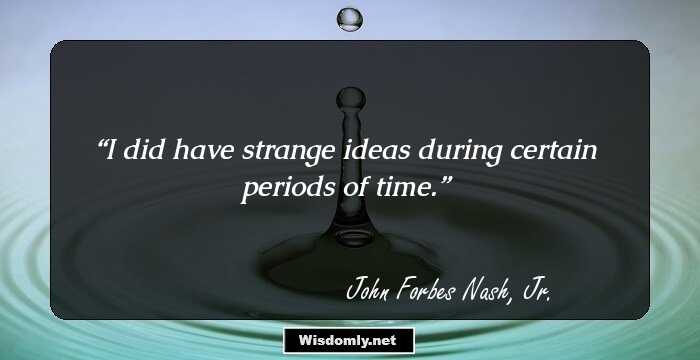
I did have strange ideas during certain periods of time.

I seem to be thinking rationally again in the style that is characteristic of scientists. However, this is not entirely a matter of joy as if someone returned from physical disability to good physical health.
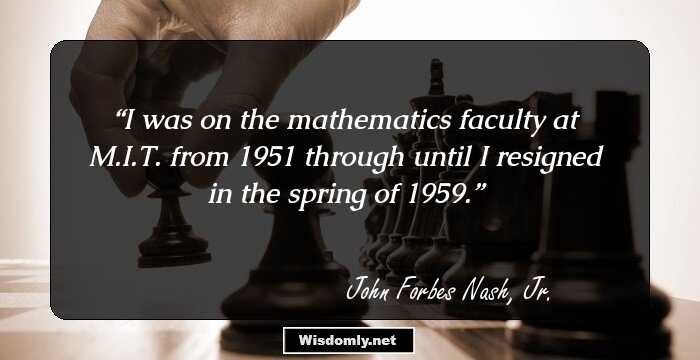
I was on the mathematics faculty at M.I.T. from 1951 through until I resigned in the spring of 1959.
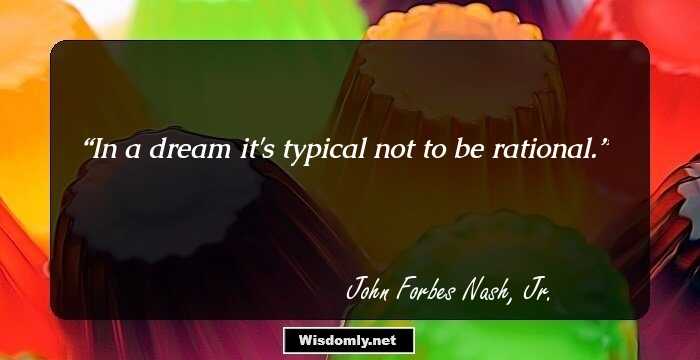
In a dream it's typical not to be rational.

There are things that tend to moderate with age. Schizophrenia is somewhat like that.
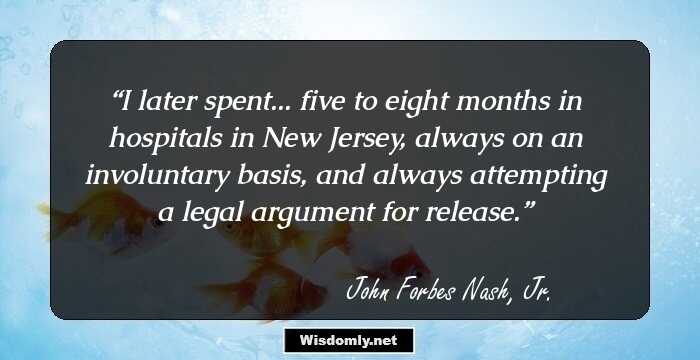
I later spent... five to eight months in hospitals in New Jersey, always on an involuntary basis, and always attempting a legal argument for release.
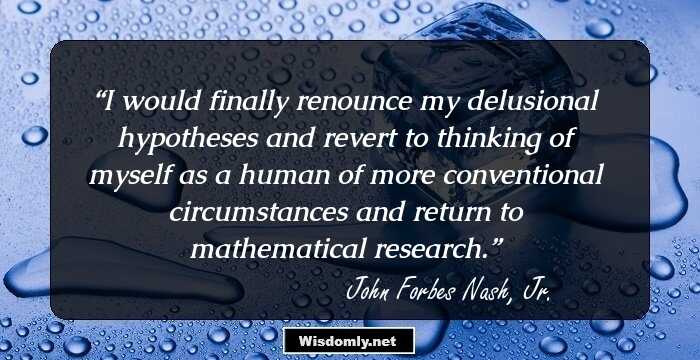
I would finally renounce my delusional hypotheses and revert to thinking of myself as a human of more conventional circumstances and return to mathematical research.
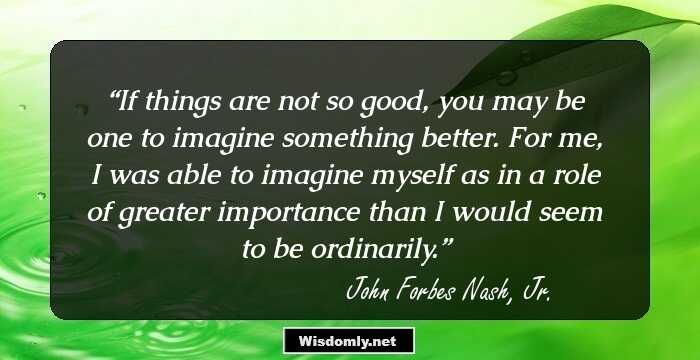
If things are not so good, you may be one to imagine something better. For me, I was able to imagine myself as in a role of greater importance than I would seem to be ordinarily.
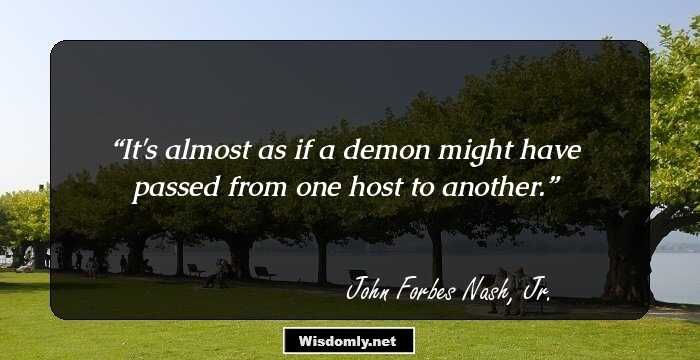
It's almost as if a demon might have passed from one host to another.

I never saw my grandfather because he had died before I was born, but I have good memories of my grandmother and of how she could play the piano at the old house.

To some extent, people who are insane are nonconformists, and society and their family wish they would live what appear to be useful lives.
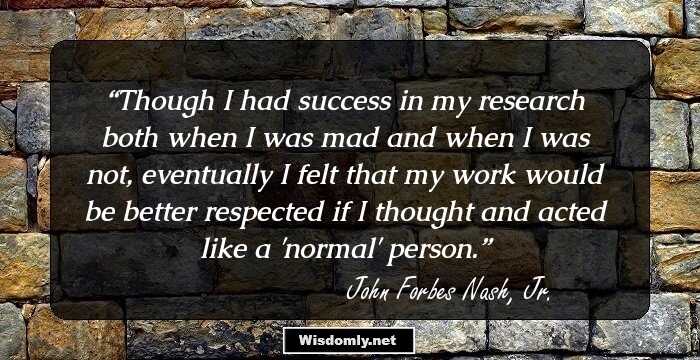
Though I had success in my research both when I was mad and when I was not, eventually I felt that my work would be better respected if I thought and acted like a 'normal' person.
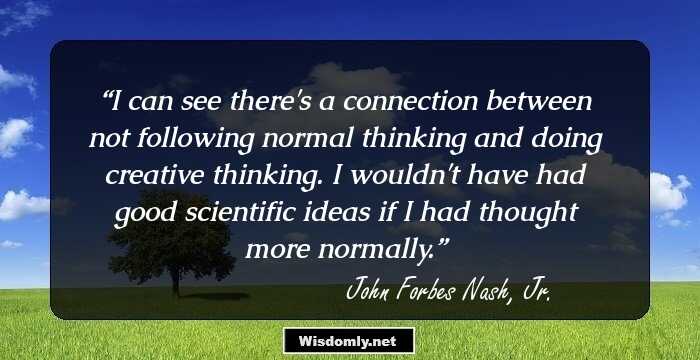
I can see there's a connection between not following normal thinking and doing creative thinking. I wouldn't have had good scientific ideas if I had thought more normally.
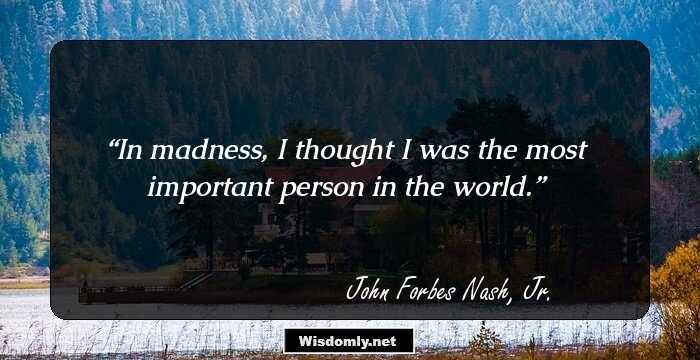
In madness, I thought I was the most important person in the world.
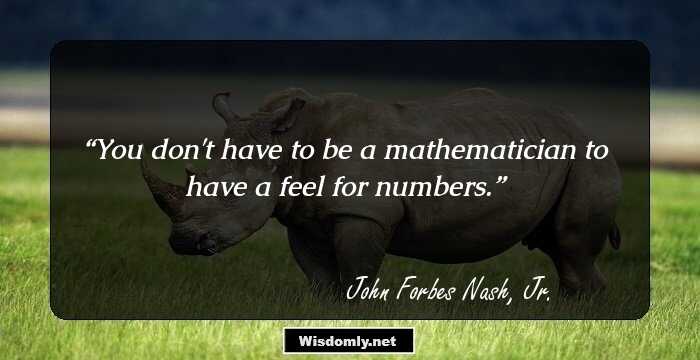
You don't have to be a mathematician to have a feel for numbers.
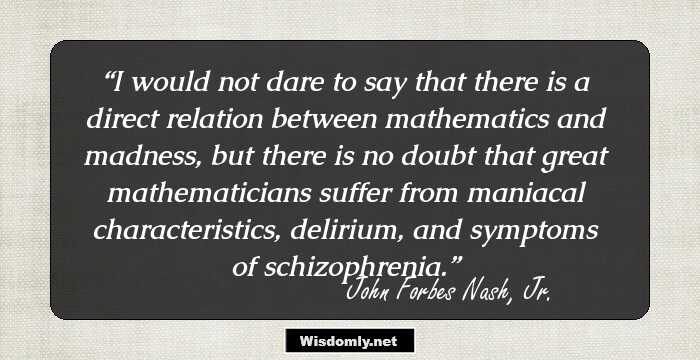
I would not dare to say that there is a direct relation between mathematics and madness, but there is no doubt that great mathematicians suffer from maniacal characteristics, delirium, and symptoms of schizophrenia.
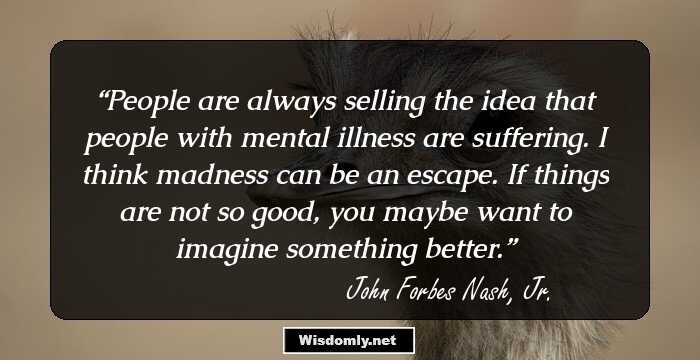
People are always selling the idea that people with mental illness are suffering. I think madness can be an escape. If things are not so good, you maybe want to imagine something better.
I think mental illness or madness can be an escape also. People don't develop a mental illness because they are in the happiest of situations, usually. One doctor observed that it was rare when people were rich to become schizophrenic. If they were poor or didn't have too much money, then it was more likely.
It has had a tremendous impact on my life, more than on the life of most Prize winners, because I was in an unusual situation. I was unemployed at the time. I was in good health, but I had reached the age of 66 and beginning to get social security, but I didn't have much of that. I had many years of unemployment before me.
I can observe the game theory is applied very much in economics. Generally, it would be wise to get into the mathematics as much as seems reasonable because the economists who use more mathematics are somehow more respected than those who use less. That's the trend.


